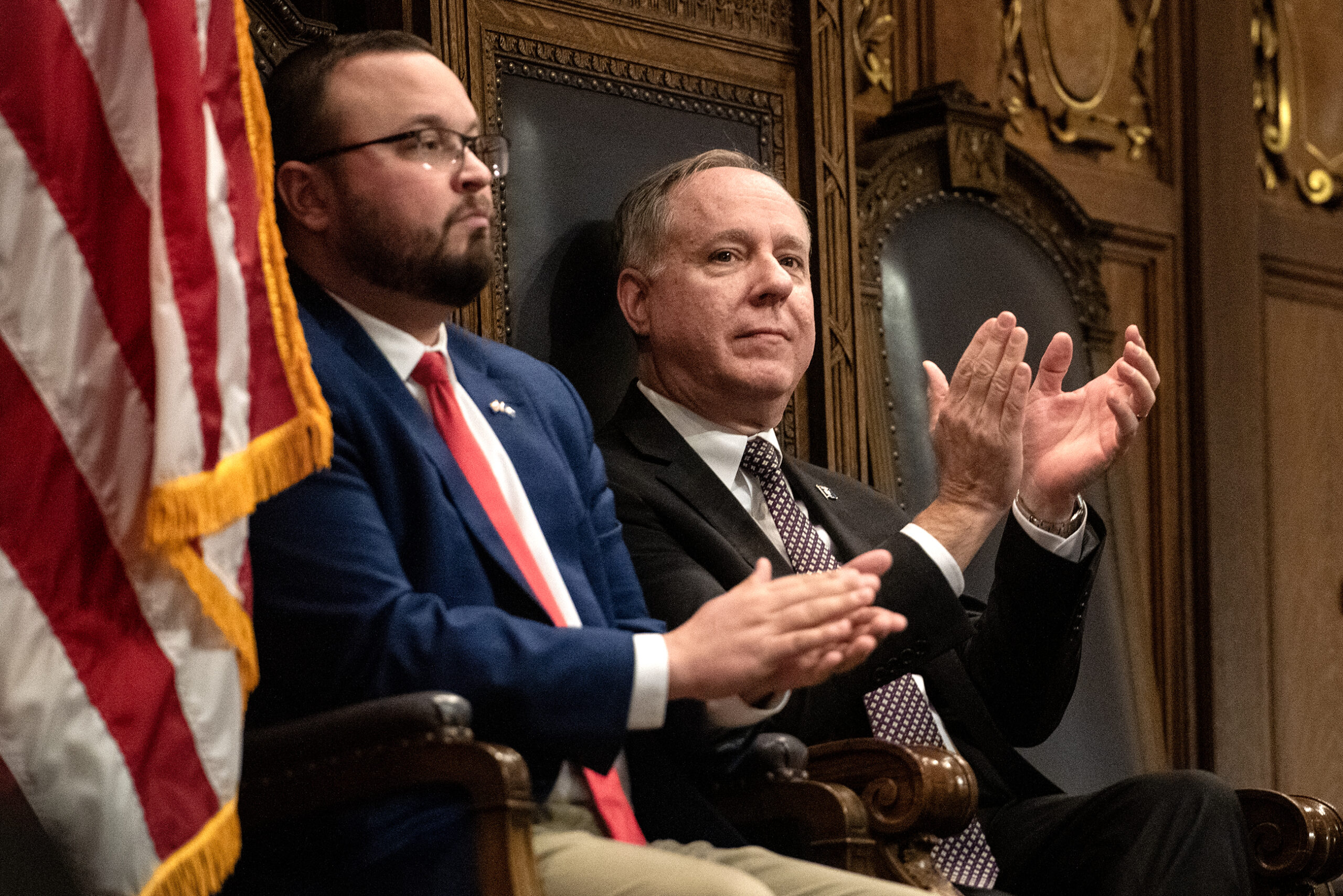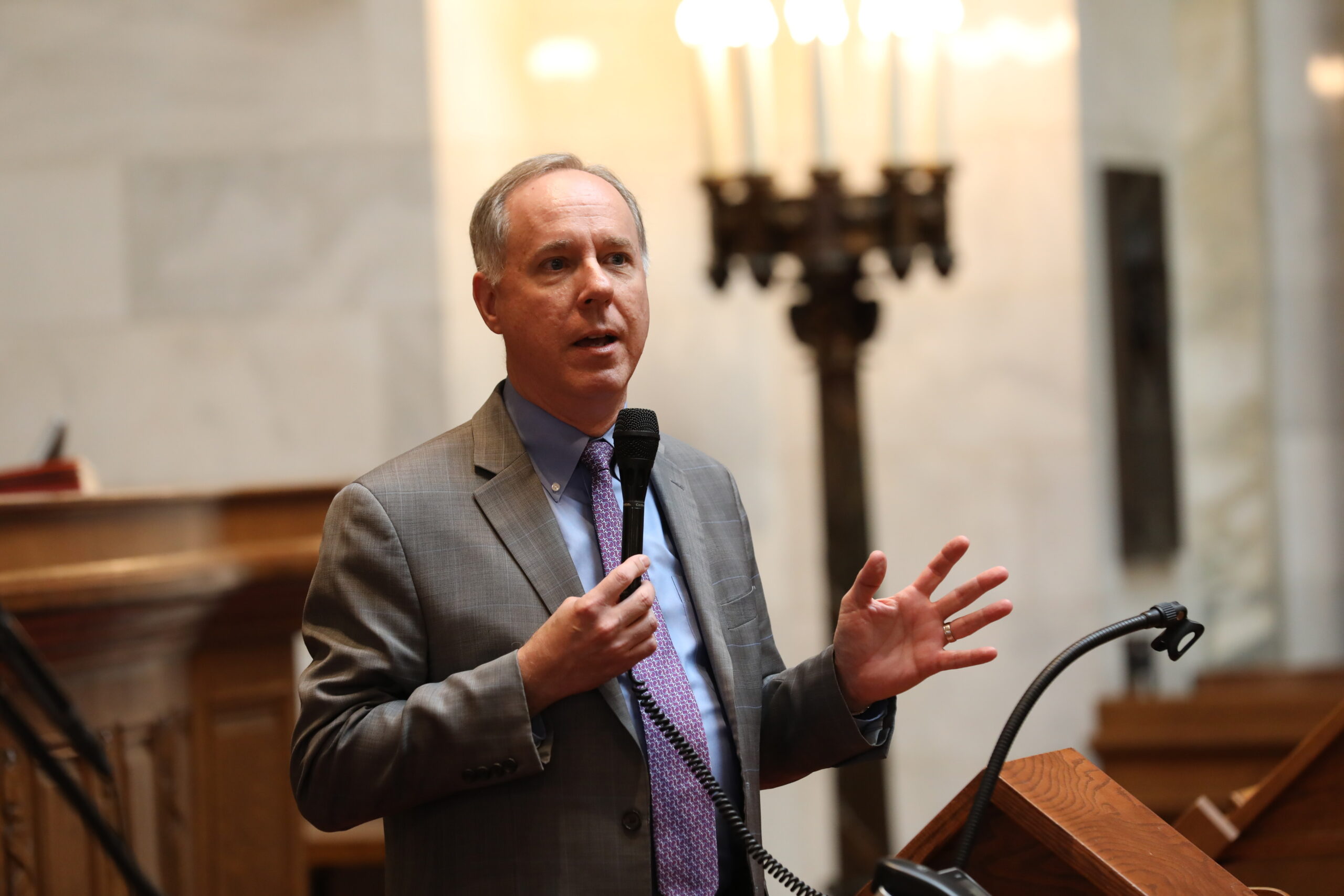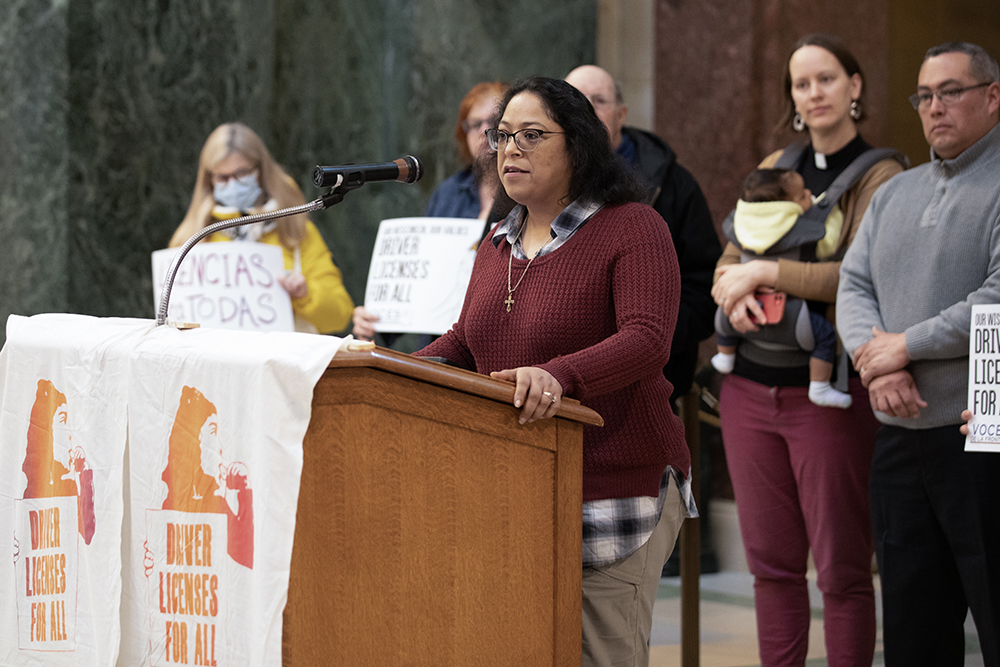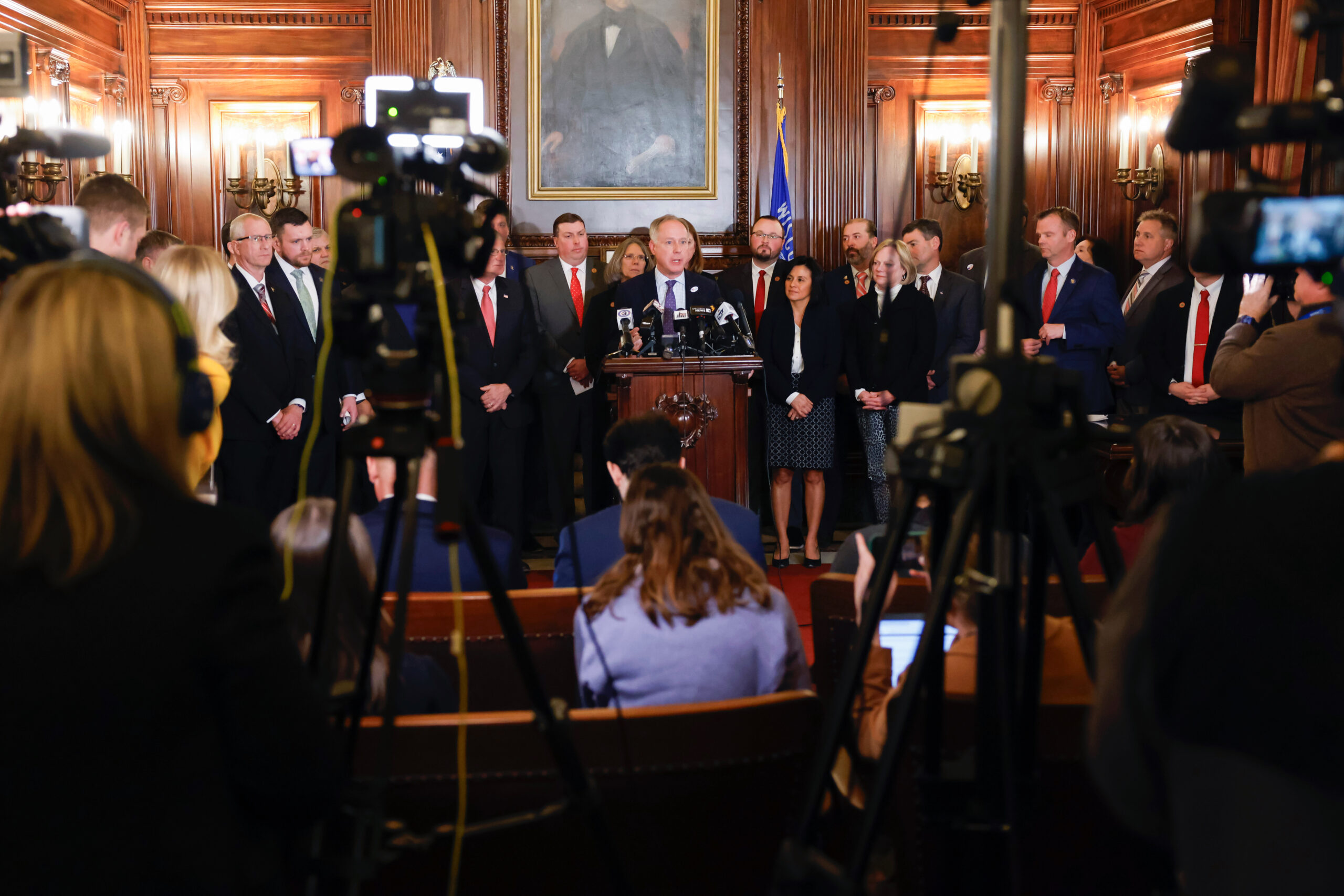Wisconsin state lawmakers were inaugurated Monday to commence a new session — the first after legislative districts were redrawn, shifting the political parties’ share of power in both chambers.
Republicans still hold majorities in both chambers, as they have since 2011, but by their narrowest margins in that same timeframe. On Monday, 54 Republicans and 45 Democrats were sworn into the Assembly, while about half of the Senate was sworn into new four-year terms, leaving an 18-15 Republican majority in that chamber.
In the November elections, Democrats picked up 10 seats in the Assembly and four in the Senate thanks to maps drawn by Gov. Tony Evers that made many districts more competitive.
News with a little more humanity
WPR’s “Wisconsin Today” newsletter keeps you connected to the state you love without feeling overwhelmed. No paywall. No agenda. No corporate filter.
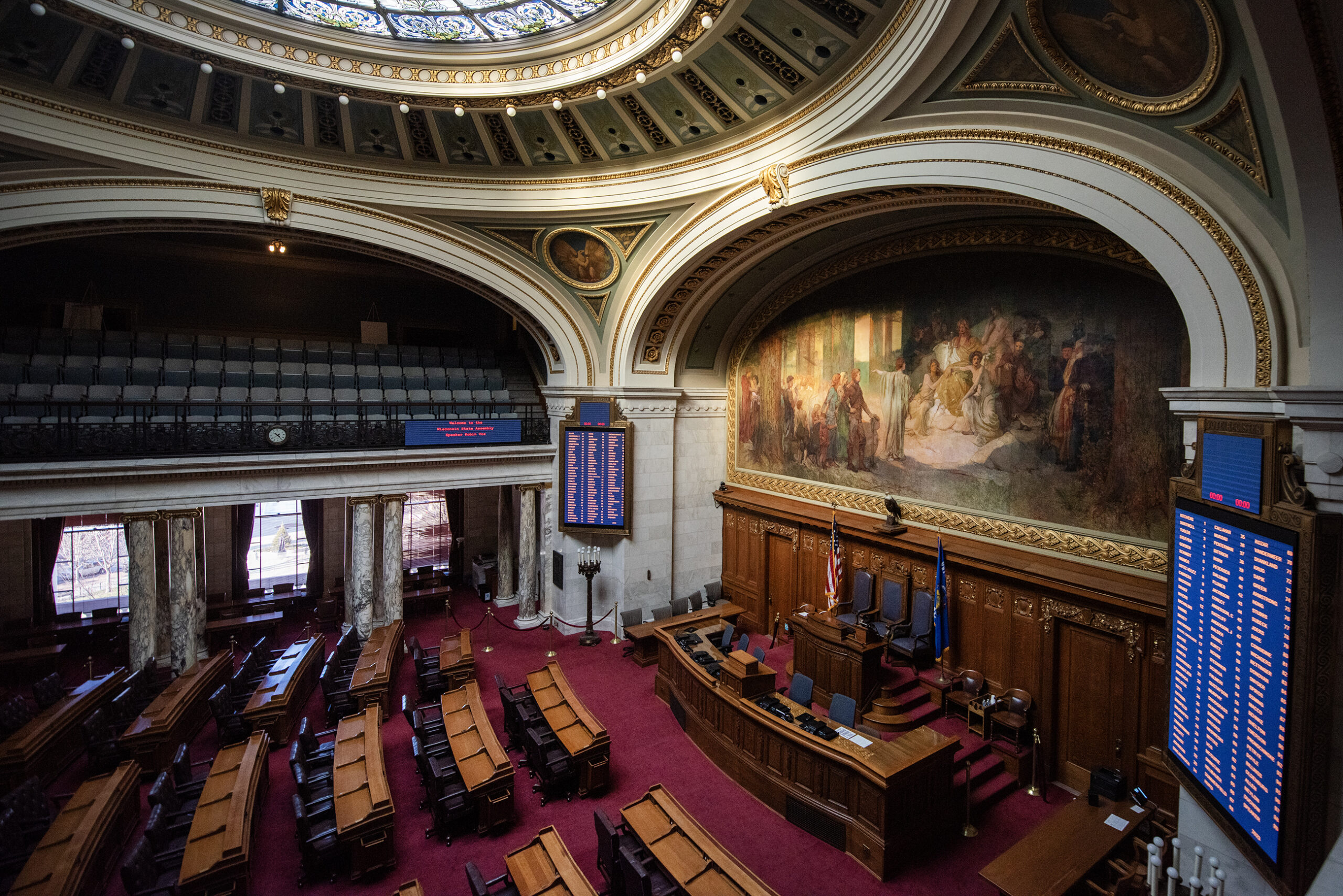
In speeches in both chambers, Republicans pledged to use their majorities to push for tax cuts paid for by the state’s surplus, and to push back on Democratic attempts to spend that surplus instead.
In the Assembly on Monday, Wisconsin Supreme Court Justice Rebecca Bradley administered the oath of office to representatives. All 99 ran for election or reelection under the new maps in November.
“It is a noble decision to hold yourselves out to your fellow citizens in service. And it is no small undertaking to run for public office. It requires the sacrifice of time away from your family. It takes some intestinal fortitude. It takes courage as you undertake your duties,” Bradley said.
And in the Senate at the same time, Waukesha County Judge Maria Lazar swore in 16 senators, those who represent the even-numbered districts that were up for election or reelection in November.
In a speech, new Senate President Mary Felzkowski, R-Tomahawk, noted that she is the second woman to hold the chamber’s gavel, and said she would represent northern and rural Wisconsin in the role.
“In this time of sensationalized politics and 30-second Twitter clips, true debate on the Senate floor is needed more than ever,” she said. “From this chair, I will ensure the right of the minority to be heard as they argue their case, while at the same time ensuring that the will of the majority still reigns true.”
Senate Majority Leader Devin LeMahieu, R-Oostburg, said Republicans would prioritize tax cuts and limiting the size of government.
“Outside forces will try to knock us off that path and push us toward failed liberal policies, higher taxes, bloated government, multi-billion dollar deficits,” he said. “They will fail.”
Senate Minority Leader Dianne Hesselbein, D-Middleton, said Democrats would aim to set a different tone and work cooperatively with Republicans.
“My colleagues, new and seasoned, are eager to work across party lines to improve the lives of people living in their districts and those people living all across the state,” she said. “I firmly believe that at the end of the day, more unites us than divides us.”

Also on Monday, Rep. Robin Vos, R-Rochester, was officially approved to serve as Assembly Speaker, defeating a challenge by Assembly Minority Leader Greta Neubauer, D-Racine.
In a speech nominating Neubauer, Assistant Minority Leader Kalan Haywood, D-Milwaukee, argued that a change of leadership would break up partisan gridlock.
“Compromise, which has largely been absent in this chamber for well over the last decade, is what will lead to productivity and results,” he said. “We’ve strayed so far from Wisconsin’s long-standing tradition of transparent government with the current leadership.”
Lawmakers voted along party lines, by voice, to approve Vos. Already the longest-serving Speaker in Wisconsin history, he was immediately sworn back in to the powerful role that he has held since 2013. In a speech, Vos said Republicans would push to increase accountability and innovation and against increasing government programming. He also pledged to pass a tax cut and not to otherwise spend the state surplus.
“We obviously have conflicting ideas, but most importantly, we can demonstrate how listening to those who you disagree with is an inherent part of our democracy,” he said. “While we will always seek to find common ground, rest assured we will never sacrifice our principles, and we don’t expect anyone else here to either.”
In his tenure, Vos has wielded considerable authority over the state’s political agenda, including overseeing the GOP passage of the new legislative maps that cut into his party’s majority in Madison.
Those maps were the outcome of a lawsuit challenging previous maps gerrymandered to favor Republicans. The state’s Supreme Court, with a then-new liberal majority, ruled that the previous maps violated the state Constitution. In early 2024, GOP lawmakers passed a map drawn by Evers that was less favorable to Republicans but not as Democratic-leaning as other options before the court.
Nevertheless, Republicans held onto their majority in both chambers. Democrats are eyeing more gains in the Senate, however, when the remaining 17 seats will be up for their first elections under the new maps. Democrats would need to flip two to take a majority. In the Assembly, all 99 Assembly districts will be up for election again in 2026.
Wisconsin Public Radio, © Copyright 2026, Board of Regents of the University of Wisconsin System and Wisconsin Educational Communications Board.




